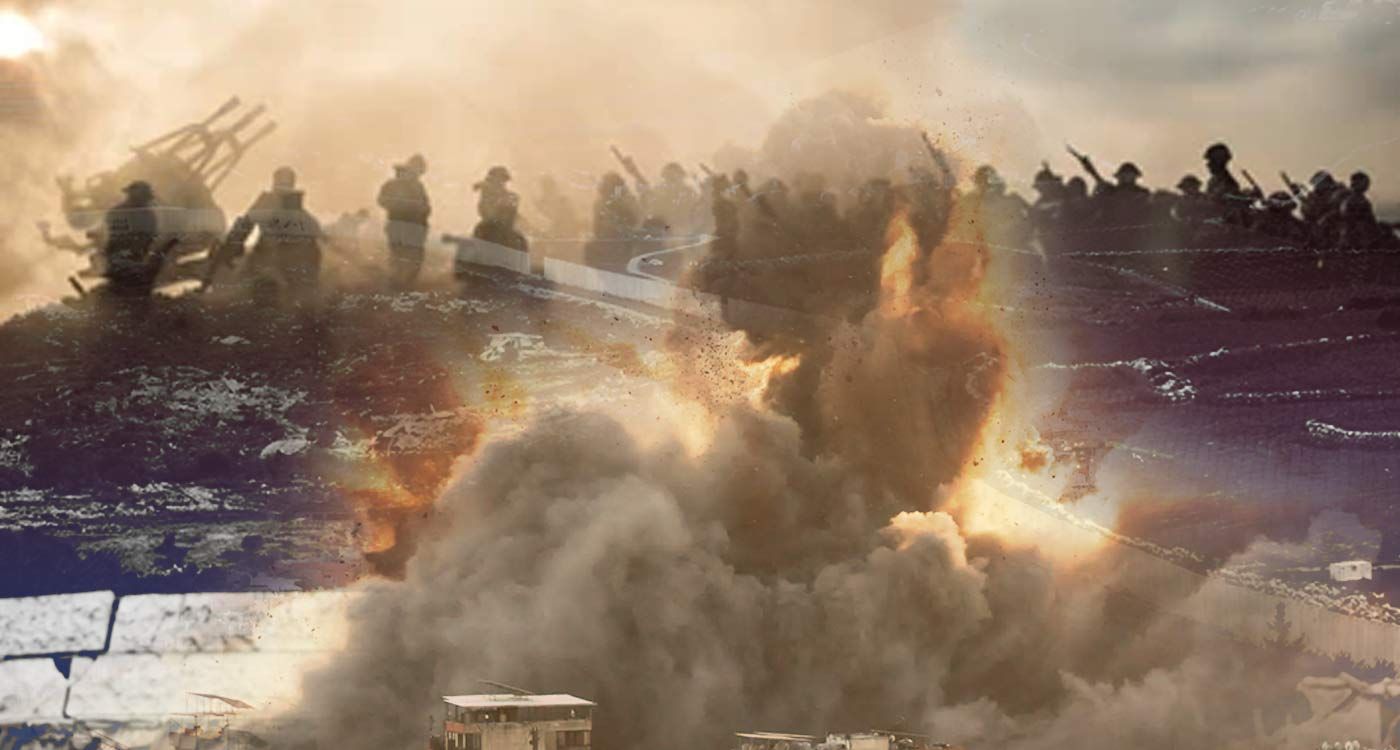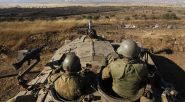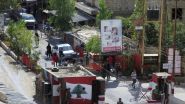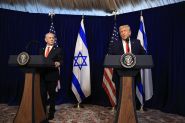
Lebanon is pretending to disarm Hezbollah and thinks that the world believes it. Then, when the world calls Beirut out, Lebanese officials engage in collective delusion and blame “Israeli aggression” for military escalation. Lebanon is now reneging on the ceasefire and the 1701 enforcement mechanism that it signed, in November, in which it pledged to disarm Hezbollah and, in return, get territory back from Israel.
Lebanese officials, including President Joseph Aoun and Prime Minister Nawaf Salam, are now trafficking in two strings of disinformation.
First, when Aoun and Salam describe military escalation as “Israeli aggression,” they think the world and the Lebanese have forgotten that it was Hezbollah that started this war on Israel, unprompted, on October 8, 2023. Since then, every Israeli action has been considered retaliation in self-defense. Lebanon started this. Lebanon is the aggressor.
Second, Lebanon promised to disarm Hezbollah, after which it regained its territory. Since then, Beirut has shuffled the order of things and reneged on its promises. Now Lebanese officials say that violent attacks from Lebanon on Israel are the result of Israel’s continued existence on Lebanese territory and that Israel must withdraw and stop policing Hezbollah, then and only then, Lebanon will disarm the pro-Iran militia.
Lebanon’s collective delusion dominates the nation’s corridors of power, often paced by the same cast of characters. Consider that the “advisors” of President Joseph Aoun are holdovers from the time of his predecessor Michel Aoun. Similarly, Salam and his top lieutenants – ministers Tarek Mitri, Ghassan Salameh, and Amer Bsat – have been politicking in Lebanon for over two decades. Nabih Berri has been Speaker of the House since 1992 and what is left of the Hezbollah leadership has been in place since the 1980s. Even the “Change” lawmakers are not newcomers to the political arena.
This incestuous closed circle of Lebanese politicians has made the Lebanese isolated from the global debate, regional trends, and – most important of all – reality. Lebanon’s decision-makers and their advisors now live in a world, where politics replaces policy and sophistry replaces action.
Along the lines of sophistry, both Aoun and Salam have yet to put the words Hezbollah and disarmament in one sentence. Both men have avoided uttering the word Hezbollah. Instead, they wax poetry about upholding Lebanese sovereignty and monopolizing the decision of war and peace.
But Hezbollah has contested even Aoun and Salam’s generic statements. Mohamad Raad, the chief of Hezbollah’s Parliamentary bloc, said that whoever claims a monopoly over the “decision of war and peace is not realistic or truthful.”
From time to time someone from Aoun or Salam’s team would say what either one of them thinks. Deputy Prime Minister Tarek Mitri blurted it out when he said that the cabinet promised to monopolize sovereignty, but did not specify when. That is, even if Salam ever uttered the words “disarming Hezbollah,” he never attached it to a timetable.
When Salam found himself cornered into answering a question about disarming Hezbollah, he told Al-Arabiya channel in an interview, that “the page of Hezbollah’s arms has been turned.” The Lebanese Prime Minister was pretending that Hezbollah had been disbanded. The next day, in response to his statement, Hezbollah fired six rockets at Israel, showing Salam who was boss.
In the ceasefire agreement, the disarmament of Hezbollah was to be completed within 60 days of the signing on November 27. Today, disbanding the Hezbollah militia looks more distant than ever.
Meanwhile, Aoun has said, behind closed doors, that if the Lebanese Armed Forces (LAF) tried to disarm Hezbollah, there would be civil war. It seems that Aoun prefers war with Israel rather than one to wrestle sovereignty from Hezbollah’s hands.
Aoun and Salam are not serious about disarming Hezbollah. They have delivered speeches and put out statements that give the impression that they wanted to do so but, in reality, have not moved a finger. Hezbollah has remained armed and in charge of war and peace.
War between Hezbollah and Israel has elevated Lebanon to the top of the list of America’s priorities. After Speaker Berri and former Prime Minister Najib Mikati walked back Hezbollah chief Hassan Nasrallah’s promise not to untie his war from the one in Gaza, Washington took a change in the Lebanese position as repentance.
Since then, Washington has done its best to give the Lebanese the chance to disarm Hezbollah and restore their state’s sovereignty. But if Aoun and Salam continue to politick instead of enforcing policy, Washington will lose interest and will let Israel continue doing what it was bent on doing: Incinerate Hezbollah.
Lebanon will miss yet another opportunity to dig out of the Hezbollah hole. As the saying goes, Washington can drive the Lebanese horse to the river but cannot make it drink. Lebanon will have to drink on its own. It has to take on its demons and disarm Hezbollah. If Aoun and Salam are too scared of warring with the Iran-backed militia, they should prepare for the resumption of a scarier war with Israel, and long-term isolation, poverty, and living atop the rubble.




Comments